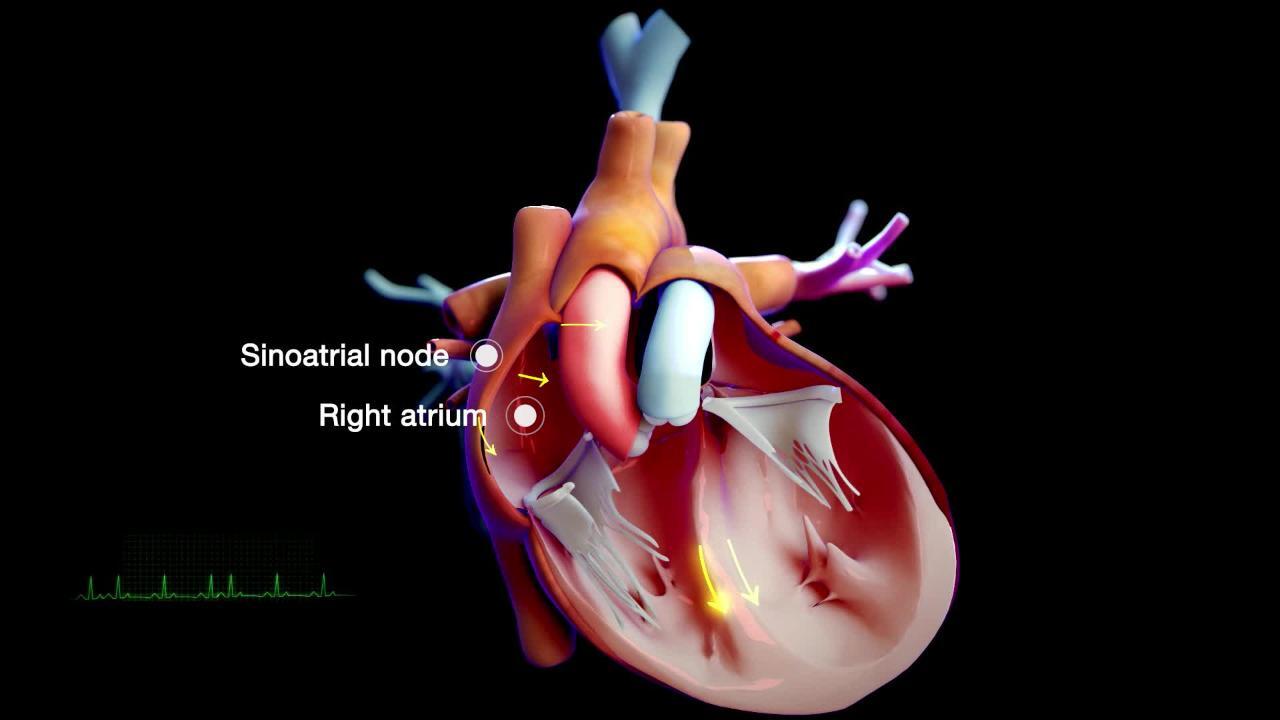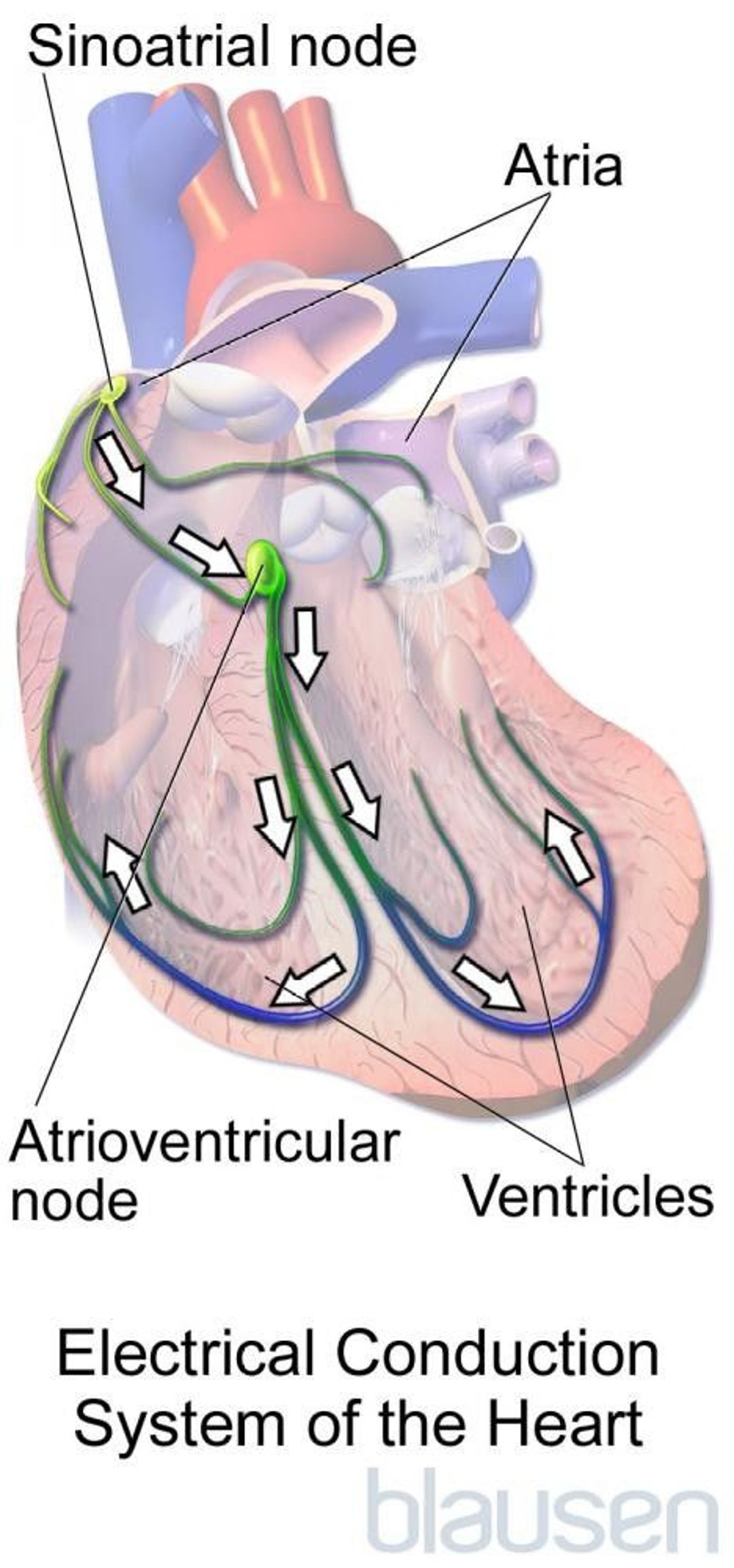Topic Resources
Your heart is a muscle that pumps blood through your body. Your heart rate is how fast your heart beats. Your heart should always have a regular, rhythmic beat, like the ticking of a clock.
Your heart has four chambers. The atria are the two upper chambers. The ventricles are the two lower chambers. The atria pump blood into the ventricles. The ventricles pump blood to your lungs and your body (see also Biology of the Heart).
Special pacemaker cells in a part of the atria called the SA node (sinoatrial node) send out regular electrical signals to your heart muscle to make it contract.
Your heart's conduction system has tiny strips of tissue sort of like electrical wires. The conduction system carries the pacemaker signals to the rest of your heart. The signals must get to all your heart muscle cells at just the right time so your heart gives a good, strong beat that pumps blood properly.
What is paroxysmal supraventricular tachycardia (SVT)?
SVT is a type of abnormal heart rhythm. In SVT your heart rate suddenly goes very fast and then returns to normal.
SVT is a regular but fast heart rate that begins and ends suddenly
You may feel your heart racing or pounding, be short of breath, and have chest pain
SVT is uncomfortable but not usually dangerous
It's most common in young people and during intense exercise
Doctors may give you medicine to stop the episode
What causes SVT?
SVT is usually caused by an abnormality in your heart's conduction system. In SVT, electrical signals get caught in a loop that goes round and round. The looping signals make the heart beat regularly but very quickly, about 160 to 220 times per minute. In SVT the looping signals are above the ventricles. In ventricular tachycardia, the abnormal rhythm is caused by a problem in your ventricles.
Most of the time when you have SVT your heart rate and rhythm are normal. Then suddenly a premature heart beat triggers the abnormal electrical circuit. Once triggered, this abnormal electrical circuit causes the heart to beat very fast. Just as suddenly, the heart returns to its normal rate and rhythm.
What are the symptoms of SVT?
The fast heart rate usually begins and ends suddenly. It may last a few minutes to many hours. You may feel:
Racing or pounding heartbeats
Weakness
Light-headedness
Shortness of breath
Chest pain
How can doctors tell if I have SVT?
Doctors feel your pulse and do:
An ECG is a quick, painless test that measures your heart’s electrical activity using stickers and cables on your chest, arms, and legs.
How do doctors treat SVT?
To slow your heart rate, your doctor may ask you to try one of the following:
Strain as if having trouble passing stool
Rub your neck just below the angle of your jaw
Plunge your face into a bowl of ice-cold water
Get medical help if:
You can't slow your heart rate
You have severe symptoms
Your rapid heart rate lasts more than 20 minutes
Doctors can usually slow your heart rate promptly by giving you medicine directly into your vein (IV medicine).
What's an ablation procedure?
If you regularly have severe symptoms, doctors may suggest you have an ablation procedure. Ablation is a treatment to destroy abnormal heart tissue.
Doctors first do electrophysiologic testing, which is like cardiac catheterization. Doctors insert a thin flexible tube (catheter) into a large blood vessel (for example, in your leg) and thread it up to your heart. The catheter has electrodes on its tip that record your heart's electrical activity from the inside. The catheter can also stimulate your heart electrically to see how it responds.
If the test shows that one small bit of heart tissue is causing the SVT, getting rid of the tissue often fixes the rhythm problem. Doctors use a catheter that delivers a high-frequency electrical current to destroy the tissue that's causing the problem.
If catheter ablation is not an option, doctors may treat you with medicines to prevent the rapid heart rate from returning.



